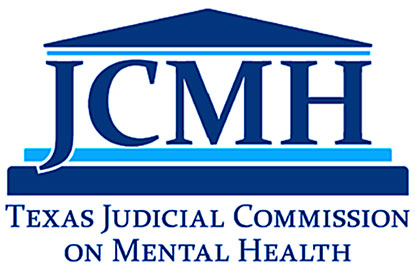
Excerpt from the Jurist in Residence Letter from Senior District Judge John J. Specia, Jr. (Ret.)
Top 10 Learning Points from the 2022 Summit
As we begin 2023, I would like to share some key ideas to help you continue your work and implement new strategies and practices inspired by the Summit. This year’s Summit Learning Points come directly from the speakers themselves:
1. “Violence is not a mental illness. Violence is a human condition.” Dr. Andy Keller, President and CEO of the Meadows Mental Health Policy Institute, reminded us not to conflate violent behavior and mental illness. In fact, most mental health conditions are associated with a comparable or lower risk of violence than the general public.
2. Trauma’s effect is real, but relationships can heal. While explaining the link between trauma, physical health, and mental health, and how relationships can build resilience, Dr. Scott LePor, Medical Director of the Texas Juvenile Justice Department, stated “Your childhood biography will determine your adult biology,” and “When a child is loved in a healthy way, the brain perceives itself as lovable; it’s implicit, it’s felt within.”
3. “You don’t have to wait for crisis.” Judge Milton Mack, State Court Administrator Emeritus of the Michigan Supreme Court, challenged us to intervene early on. Citing the proverbial train heading towards a broken bridge, Judge Mack urged that we radio the engineer instead of sending an ambulance to the bottom of the ravine.
4. Assisted Outpatient Treatment (AOT) Courts can save lives. In a moving tribute to AOT courts and judges, AOT graduate Eric Smith declared that “AOT, in particular Judge Kazen’s brand of AOT, saved my life,” and “You are heroes with the power to create progress.”
5. Tailor the case plan for the client. While speaking about decision-making supports for people with IDD or cognitive impairment, attorney Cicely Reid implored us to view each individual as a person—not a case—and to start “thinking about a person-centered approach to coming up with a solution for each [individual].”
6. Language matters. Adrienne Kennedy, past president of NAMI, advised that our words have weight: “The shame of mental illness is what brings the stigma to have any bearing at all. But the antidote for that is education and understanding.”
7. Diversion ideas exist for every budget. On a panel discussing the second year of the Eliminate the Wait initiative, JCMH Executive Director Kristi Taylor affirmed that making something out of nothing is possible. “If you hear about this type of program and you think, ‘that’s for the [large counties],’ we created another column of ideas called Informal Diversion Programs where you can duplicate the program on a smaller scale that is just as effective.”
8. Think different. Colleen Davis, a prosecutor from a rural part of Texas, has found success in creative collaboration with all parties in a case. She advised, “Do not get stuck with tunnel vision or in the box of ‘I am a prosecutor, my job is to get a conviction,’ ‘I’m a defense attorney, my job is to get a dismissal.’ You have to be openminded to all sorts of solutions.”
9. Start small. “This is a completely overwhelming thing that we’re trying to tackle,” counseled Judge Rebecca DePew of Bell County as she spoke about diverting people with mental health needs from jail. “If you try to take it on all at once… it’s going to be a dismal fail, so I’m a firm believer in taking things small.”
10. Take care of yourselves and each other. Attorney Terry Bentley Hill, who frequently speaks on lawyer wellness, shared the effect that secondary trauma had on her personal and professional lives and admonished: “We have got to stop minding our own business. We can all ask: ‘are you okay?’” When it comes to people who are struggling, know that asking that one question can save a life.